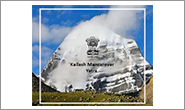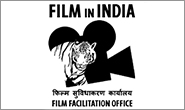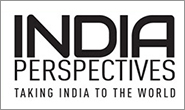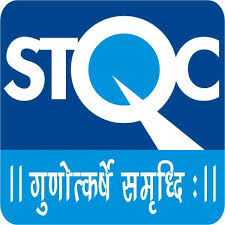Official Spokes person (Shri Syed Akbaruddin):Good afternoon friends and thank you very much for being here this afternoon.
As you are aware, today we have the Foreign Secretary here to brief you on Prime Minister’sforthcoming visits to Russia and China. Along with her are the nodal officersin the Ministry who handle each of these countries. On Foreign Secretary’sright is Mr. Gautam Bambawale who is Joint Secretary (East Asia) who handlesChina as our main contact person relating to all diplomatic efforts with China.On my left is Mr. Ajay Bisaria who is Joint Secretary (Eurasia) who is ourMinistry’s point person dealing with Russia, among other things.
I will request Foreign Secretary to make her opening remarks following which shewill answer in a sequential manner first questions on Russia, then questions onChina, and then if there is time she is willing to answer questions on anythingelse if any of you are interested.
I hope you all know the ground rules. Some of you may be new here. One question perperson will be allowed. So, please choose your question carefully. There willnot be seconds allowed for anyone. Otherwise, maybe we will have two hundredquestions directed at us. We hope to have this interaction for forty minutes. Iwould also request you to put your mobile phones in silent mode so that they donot disrupt the proceedings.
I will now request Foreign Secretary to make her opening remarks.
Foreign Secretary (Shrimati Sujatha Singh):PrimeMinister of India Dr. Manmohan Singh will, on the first leg of his two-nationtour, be paying an Official Visit to Moscow from 20th to 22nd October, for the 14th Annual India-Russia Summit.
The practice of having an Annual Summit between India and Russia was institutionalizedin 2000with the signing of the Declaration of the Strategic Partnership betweenIndia and Russia. The annual event exemplifies the special and privileged strategicpartnership between our two countries.
Our Prime Minister is no stranger to Russia. This is the tenth summit that he will attend,the fifth in Moscow. He has also been in Russia as recently as Juneat the G20summit in St. Petersburg.
Russia has been a steadfast friend and partner for over six decades. It has been a sourceof our defence needs, space program and high technologies. It has extendedfriendship and support through challenging times in India’s history. Thispartnership is today a key priority of India’s foreign policy.
The relationship is supported by an elaborate, multilayered and very effective mechanismwhich allows us to broaden and deepen our interaction continually. In therun-up to the Summit, we have had intense exchanges. This year, External Affairs Minister, Shri Salman Khurshid, has visited Moscow twice. The last visit was inOctober 2013 for the nineteenth session of the Intergovernmental Commission whichis co-chaired by Deputy Prime Minister Rogozin. EAM also had a very productivemeeting with Russian Foreign Minister Lavrov.
Home Minister of India, Shri Sushil Kumar Shinde, has visited Moscow in April. Commerceand Industry Minister, Shri Anand Sharma, has visited thrice in the past yearto energize trade and economic ties and business-to-business links. OurNational Security Adviser too visited Russia thrice during this year, while theRussian National Security Adviser visited India in January 2013.
The Chair person of the Russian Federation Council visited India in February 2013.In addition, we have had numerous official level engagements. For instance, we haveForeign Office Consultations with Russia on seventeen different subject areas, reflectingthe convergence in our approaches on regional and global issues.
What this robust exchangeindicates is a deep, rock-solid and time-tested relationship with one of ourclosest global partners. Today India-Russia cooperation is truly multidimensionalcovering the fields of defence, energy, space, high technology, trade andeconomy, science, culture and people-to-people exchanges.
Russia is a key partner for us in the field of defence. In recent years our militarytechnical cooperation has evolved into joint design, development and productionof defence systems such as fifth generation fighters and multirole transport aircraft.Earlier this year, we received our stealth frigate INS Trikand and we are nowawaiting the commissioning of INS Vikramaditya next month. Our Armed Forces areholding the INDRA 2013 exercise in Rajasthan as we speak.
The Kudankulam Nuclear Power Plant exemplifies our close cooperation in the fieldof nuclear energy. Unit-1 of the Kudankulam Nuclear Power Plant has beencompletedandattained criticality in July this year. Unit-2 at Kudankulam shouldbe readyinthe first half of 2014. On Units 3 and 4, our companiesarefinalizingdocuments.
Last year witnesseda24.5 per cent rise in bilateral trade, crossing US$ 11billion in 2012 forthefirst time. Investment is also emerging as an importantfocus of ourbilateralties. Russia is an important partner in the fieldof hydrocarbons, andOVL isparticipating in two projects – as 20 per centpartner in the Sakhalin-1projectand as 100 per cent owner and operator ofImperial Energy in the TomskRegion.
Coming back to thevisit program, the Prime Minister will be arriving in MoscowonOctober 20th.October 21st is the main engagementdaywhere he will meetPresident Putin for official talks and a working lunch.Onthe same daythe Prime Minister will be conferred with an Honorary Doctoratebythe MoscowState Institute of International Relations.
Asis customary,a Joint Statement will be issued at the conclusion of thetalkstouching onbilateral as well as global issues. We expect a few agreementstobesigned in diverse areas such as science and technology, energyefficiencyandstandards. Also, on the margins of the Summit we will have ameeting ofthenewly reconstituted CEO’s Council.
Following the visit to Russia, Prime Minister will pay an official visit toBeijing from22ndto24th October, 2013. Thisis the Prime Minister’ssecond bilateralvisit to Beijing. Previously hehad visited China in January2008. Also this isthe second bilateralmeeting between the Prime Minister andPrime Minister LiKeqiang during thecourse of this year. You would recall thatPrime Minister LiKeqiang wasin India for a visit in May 2013. This is thefirst time since 1954thatthe Prime Ministers of India and China will havevisited each other’scountryin the same calendar year.
The programme for the visit is broadly that Prime Minister will reach Beijing intheeveningof 22nd October, and will be received ceremoniallythenextmorning at the Great Hall of the People by his Chinesecounterpart.Theywill then have discussions both in limited as wellasdelegation-levelformat. Premier Li Keqiang will host a banquet lunch.
PM will also bemeeting the Chairman of the National People’s Congress ZhangDeijangin theafternoon. In the evening, Prime Minister will be hosted byPresidentXiJinping at a banquet dinner. On 24th October,the PrimeMinisterwill address the Central Party School of the Communist Partyof China.He willthen be meeting former Prime Minister Wen Jiabao, followed bylunch. So,as youcan see, he has a rather tight schedule in Beijing.
The meetings with the Chinese leadership have a broad agenda and are likely tocoverallaspects of bilateral relations in addition to regional and globalissuesofimportance.
India and China have an elaborate architecture of engagement and dialogue whichcoverstheentire gamut of bilateral relations. Prime Minister had metPresidentXiJinping on the margins of the BRICS Summit in Durban in March, 2013.Alsothisyear itself the External Affairs Minister has met his counterpartonfouroccasions, in Beijing as well as on the margins of multilateral summits.
The Defenc eMinister visited China in July. The Special Representatives heldtheir16throundof talks on the boundary question in June at Beijing.TheStrategicDialogue at the level of Foreign Secretary and ChineseVice-Ministerwas heldin August, 2013. We have also had the first India-ChinaDialogueonAfghanistan, and the first India-China Dialogue on Central Asia.Theintensity and breadth of the interactions is reflective of theimportancethatboth countries place on the relationship.
Maintenance of peace, tranquility and stability on our border is an important factorinourbilateral ties, and it is expected that this would be an importantaspectofthe discussions as it is also the fundamental basis on which the restofourbilateral relationship can proceed and grow.
Prime Minister has on several occasions previously emphasized that there issufficientspacein the world for both India and China to meettheirdevelopmentalaspirations. Therefore, even as we pursue our economic andsocialgoalswe have expanded our bilateral ties. In particular, economicexchangeshaveemerged as an important underpinning of our bilateral relations.
Both India and China aim to achieve their commonly set target of US$ 100 billioninterms ofbilateral trade by 2015, and are striving to ensure balanceoftradeflows. The possibility of Chinese investment in India through themechanism of an industrial park is being explored. During the visit ofPrimeMinister toBeijing, the second meeting of the India-China CEOs Forum is alsotakingplace,and PM and PM Li Keqiang are expected to receive therecommendations ofthe CEOsto expand economic linkages.
2014 is the 60thanniversary of the enunciation of Panchsheel and hasbeendesignated as the Year ofIndia-China Friendly Exchanges. Measures relatingtopeople-to-people exchangesduring the next year are also areas where weseepossibilities of greatercooperation. The first India-China Media Forumwassuccessfully held in NewDelhi, and we intend to have this as an annualfeature.We are also pursuingavenues of cultural cooperation.
At the culmination of the visit a Joint Statement will be issued summarizingthemajorareas in our bilateral ties. It is also expected that someagreementswould besigned on issues which we are currently working on and hopeto concludeduringthe visit.
Both the visitto Russia and to China manifest the priority we place onregularhigh-levelinteractions in our engagements with these two veryimportantcountries.
Official Spokes person: We will now open the floor forquestionsrelating to Russia. So let us focusright now on Russia.
Question:MadamForeignSecretary, we are keen on acquiring on lease a secondnuclear submarinefromRussia. What is the status? Is this deal going to befinalised duringthissummit? And are you going to invoke the warranty clausewith respect toINSSindhurakshak which expires in January 2014?
Official Spokes person: Rajiv, before I give this toForeignSecretary to respond, I would like to knowwhich of the two questions youwantanswered. If you ask two questions, we willchoose one. I have alreadysaidthat. So, please be very clear. Just choose onequestion.
Question:Thesubmarineone.
Foreign Secretary: As you are all aware, defencecooperation is an important pillarof ourmultifaceted, special and privilegedstrategic partnership based onlongstandingand time-tested friendship over sixdecades. This cooperation isprogressingahead to mutual satisfaction, and weexpect this to continue to be the case.
Question:Madam,yousaid that Russia and India will sign an agreement on energyefficiency. Iamunable to understand what this agreement is going to be. Couldyoupleaseclarify this point?
Foreign Secretary: I am going to ask my Joint Secretary to elaborate.
Joint Secretary (Eurasia) (Shri Ajay Bisaria):Itisexactly what the namesuggests. There is an agreement and a discussiononcooperation between the twosides in the area of energy efficiency. Andthatincludes exchange oftechnologies, exchange of information, and exchangeofexperts to have greater effectiveness in terms of mutual cooperation. Thisisunder discussion.
Question:Madam,myquestion is regarding the regional security. This is one ofissues ofprimeimportance especially post 2014. How does India assess thisregionalsecurityespecially in Afghanistan with the two major powers?
Foreign Secretary: As very close strategic partners,Russia and India consult eachother on allissues of mutual interest. What willhappen in Afghanistan,especially in thecontext of the drawdown of forces in2014, is something thatis of greatinterest to both Russia and to India, and wecontinue to consultvery closelywith each other on this subject at variouslevels including at mylevel.
Question:Thisisregarding the Shanghai Cooperation Organisation (SCO). RussianMinisterofForeign Affairs has said after his meeting with Mr. KhurshidthatIndia’srequest to become a member of the SCO has been already processed.IsIndia’sparticipation in the SCO on the agenda of this summit?
Foreign Secretary: I would not like to pre-empt what is onthe agenda and what isnot. We arealready Observers at the Shanghai CooperationOrganisation, and wewill see howour participation goes in the future.
Question:YourExcellency,you told us that some negotiations will happen withregard to Units3 and 4 ofKudankulam. Can you explain at what level thesenegotiations will be?Are yougoing to sign a contract? When should we expectthe signing of thiscontract?
Foreign Secretary: As you are aware, aninter governmental agreement on cooperation inthe peaceful uses of nuclearenergy, including thenuclear power plant atKudankulam, already exists.Contracts for specific unitsare concluded at thelevel of companies. And ourcompanies are in discussion onKudankulam 3 and 4.We hope to conclude specificcontracts in the near future.
Question:Inyouropening remarks you referred to the multirole transportaircraft. And alsothereis a plan to coproduce passenger transport aircraft.What is the status ofthesetwo major projects between India and Russia?
Foreign Secretary: As I have indicated, defencecooperation is one of the veryimportant aspects.You would be knowing, over thepast couple of years Russiahas delivered anuclear-powered submarine, threeworld-class stealth frigates,Su-30MKIfighters, T90 tanks, and other equipmentto our armed forces. We aremaking goodprogress on our joint development andproduction projects such asthe fifthgeneration fighter aircraft and themultirole transport aircraft.
Question:Aboutmultiroletransport aircraft?
Official Spoke sperson: That is what she said - makinggoodprogress.
Question:Madam,theeconomy and trade have been an area that has been a bit of aproblem inbilateralrelations. Are there any new initiatives that arehappening on thisvisit thatwill enhance the levels of bilateral trade?
Foreign Secretary: I do not agree that it has been an areaof problems. This is oneof the areasthat has seen excellent progress becauseIndia-Russia trade grewfrom US$ 8.85billion in 2012 to US$ 11.04. And this hasrepresented a growthof 24.5 per centover the past one year. If this pace ismaintained, our tradewould cross US$ 20billion in 2015. So, you are aware thatthe global economicenvironment remainsdifficult and this has affected tradewith many of ourother partners. Butnotwithstanding this slowdown in the globaleconomicenvironment, our trade withRussia has actually grown by 24.5 per cent.So,this is something that we lookforward to continuing to sustain.
There are various other areas that require more focused attention. We needmoreactivebusiness-to-business relations. Efforts by both countries toliberalisethetrade environment are on. We appreciate the fact that there isprobably aneedfor better flow of information between our businesses abouteachother’scapabilities, achievements and opportunities. We have suggestedaComprehensiveEconomic Cooperation Agreement between India and the CustomsUnionof Belarus,Kazakhstan and Russia, which we hope would be initiated soon.
Mutual investmentis an emerging area between companies in India and Russia inareassuch aschemicals, pharmaceuticals, automobiles,telecommunications,infrastructure,fertilisers and energy, to name a few areas.So, we see this assomething thatis developing very well and continues to be apromising area.
Question:Madam,youare talking about cooperation with Russia in hydrocarbons. Doyou expect anynewagreements during the visit in this regard?
Foreign Secretary: Russia is a major energy producer whileIndia is one of thefastest-growingenergy consumers. ONGC Videsh Limited haslarge investments inSakhalin-1 andTomsk, and is considering new investmentopportunities in oiland gas, inprojects in Siberia, in Russia’s Far East and inthe Arctic Shelfwith companiessuch as Rosneft, Gazprom and Novatech. And we arehoping to havesuccessfulconclusion of these endeavours when the time is right.So, energycooperationwhether it is nuclear energy or oil and gas sectors areanimportant dimensionof our strategic partnership. In the oil and gassectors,cooperation has beenprogressing very well. But newer areas definitelyneed tobe explored.
We have broughtto the Russian side’s attention OVL’s keen interest innewerprojects includingjoint exploration of the Russian Arctic zone which isveryrich in minerals.Many of these issues were discussed in the meeting ofWorkingGroup on Energywhich met on the eve of the last IGC earlier this month.Beinglargeinvestments and long-gestation projects, these kinds of transactions doconsumetimeas well as a lot of effort. You may also be aware that ourcompanieshaverecently signed long-term deals in supply of energy to India.Both sidesarekeen to continue and deepen this aspect.
Question:Madam,aboutKudankulam 3 and 4, you said ‘in the near future’. Doesthat near futureincludeduring the visit now? What about the concernsexpressed by Russiancompanies overthe liability clause in the nuclearliability Act?
Foreign Secretary: Near future means near future. Let ussee, because the companiescontinue to bein discussion, and all these issuescontinue to be in technicaland legaldiscussions. Whether they are liabilityissues, financial issues,insuranceissues, these continue to be in discussion.
Official Spokes person:Ido not see anyone else with questionson Russia.So, we will now move toquestions on the other topic, Prime Minister’svisit toChina.
Question:Madam,inthe last visit of Li Keqiang to Delhi we were made tounderstand that Tibetwasthe issue that was raised by China to put in theJoint Statement. Areyouprepared to talk anything about Tibet in this visit ofthe PrimeMinisterManmohan Singh to China?
Foreign Secretary: India’s stand on Tibet isreallywell-known and there has been nochange in this. So, I do not see whatyourquestion specifically refers to. Letus leave it at that.
Question:We havea huge trade deficit with China - US$ 30 billion plus - and theplan is tohave aUS$ 100 billion thing in the next two, three years. The Chinese have problem sletting us in in pharmaceuticals and several other thingsin which weareinterested. Is this likely to be taken up when the PrimeMinister goes toChina?And is there any possibility of India and Chinaconducting the bilateraltrade intheir respective currencies?
Foreign Secretary: You are right that the adverse tradedeficit that India faces inits exchanges with China is an issue of concernwhich we have raised with Chinaon severaloccasions at several levels. This issomething that can be dealtwith byenhancing Chinese direct investment into India.In fact this May,during hisvisit to India, you will be aware, the ChinesePremier had proposedestablishinga Chinese industrial park in India whereChinese companies couldclustertogether; and India takes this proposal veryseriously.
Right now, evenas this press conference is going on, a team from China - fromtheirMinistryof Commerce and the China Development Bank - is in India todiscussthissubject with the Ministry of Commerce and Industry. We will beshowingthemsome possible sites for an industrial park or zone. The same timeisalsodiscussing with the Department of Commerce a five-year tradedevelopmentplanwhich will seek to ensure more balanced trade. So, it is quitepossible that the two Prime Ministers will discuss these issues because this isanongoingmatter that continues to be raised from our side whenever we meet.
Question:Madam,thereis an element of uncertainty between the two countries dueto frequentincursionsand tensions at the border. How will India address itpolitically?What will beour approach in Beijing?
Foreign Secretary: As you know, there exists a boundaryquestion between India andChina, and the Special Representatives of India andChina are discussing andtackling thisissue. They have had sixteen rounds ofdiscussions so far. In2005 theysucceeded at arriving at the PoliticalParameters and GuidingPrinciples for theResolution of the Boundary Question.They are now discussingthe framework for aresolution of the boundary question.Let us give them timeto work on thisissue. In the meantime, we need to see howthe matterprogresses.
Question:Madam,whichare the cities identified for this Chinese industrial park?
OfficialSpokes person: Not cities, States.
Foreign Secretary: There are several States that wouldlike to see this investmenttaking place.Amongst them are: Uttar Pradesh,Karnataka, Gujarat, AndhraPradesh and TamilNadu.
Question:Madam,Indiahas always voiced concern over the Brahmaputra becauseChina is theupperriparian country. Will the issue figure during the talks?
Foreign Secretary: As a lower riparian State on manytrans-border rivers that we havewith China,the Government of India has beenexpressing its concern on theutilisation ofthe waters of such rivers to theGovernment of China includingat the highestlevel. We have actively engagedChina on this subject. TheChinese Governmenthas explained to us theirperspective on this issue. As youare aware, we dohave a mechanism with Chinafor discussing many of theseissues. It is calledthe Expert Level Mechanism(ELM) between the Ministries ofWater Resources ofthe two countries. We havebeen receiving valuablehydrological data from Chinaon some of our trans-borderrivers. We willcontinue to discuss this subjectwith our Chinese interlocutors.
Question:Wehearthat a Border Defence Cooperation Agreement is going to besigned. Couldyou giveus a few details about this agreement? I believe thereare some CBMsthat arebeing proposed. What are these CBMs likely to be?
Foreign Secretary: As I stated in my opening remarks,there are a number ofagreements which we arehoping to sign in Beijing. I do notwant to go into thedetails since these willbe outcomes from the discussionsthat actually happenbetween the two PrimeMinisters. But let me assure all ofyou that we willbrief you extensivelyduring the course of the visit includingon all the agreementsor documents thatmay be signed.
Question:MadamForeignSecretary, Indian citizens from Arunachal Pradesh areregularly facingthisproblem of stapled-visa issue. Will there be any talks onthe visaliberalisationissue so that it can solve this problem forever?
Foreign Secretary: I have already told you that there is aboundary question betweenIndia andChina, and that we are in discussions at thelevel of SpecialRepresentatives onhow to discuss and deal with this issue.There have beenseveral rounds ofdiscussions, and they have arrived at thePoliticalParameters and GuidingPrinciples. They are now discussing theframework forresolving the boundaryquestion. Let me again reiterate that weneed to givethem time to work out thisissue. In the meantime, I wish toreiterate theIndian position that ArunachalPradesh is an integral andinalienable part ofIndia.
Question:Madam,jistareeke se China aur Pakistan ke beech mein nuclear plants kibaat chal rahihai,usko le kar ke Bharat kya China ke Pradhan Mantri ke saamneyeh baatrakhega kiPakistan kaafi khatarnaak ho sakta hai jis tareeke se vohnuclearpower plantdene ki baat kar raha hai?
Foreign Secretary:MainaapkoAngrezi mein javab denewaali hun, theekhai?
Question:Sure.
Foreign Secretary: This is a concern for India. However,Ido not wish to prejudgewhat the two Prime Ministers will discuss. Let uswaitfor their talks to beover, and I would be happy to brief you then.
Official Spokes person:If there are no more questionsonthisvisit, are there any questions on anything else?
Question:Isthereany word on whether or not the Prime Minister will be visitingColombo fortheCHOGM Summit?
Foreign Secretary: The Government of Sri Lanka hasextended an invitation. TheGovernment of Indiahas not yet taken a decision.This decision will be takencloser to the datekeeping in view our foreign policypriorities, ourinternational obligations,and our national interest.
Question:Mrs.Singh,my question also pertains to Dr. Manmohan Singh attending ornotattending theCHOGM Summit. Madam, how relevant is the Commonwealth? Thisis alarger question.If it is still relevant as an entity, surely the argumentwouldextend that itwould be important for the Indian Prime Minister to attenditrather than, assome would say, succumb to domestic coalition compulsions asthecase may be andnot go.
Foreign Secretary: The Commonwealth is a relevantinstitution. It is a relevantinstitution thathas 53 or 54 member countries atlast count. Any institutionthat has so manymember states cannot but be relevantin terms of meetingleaders from all partsof the world and speaking to themabout our mutualconcerns.
Foreign policy is an extension of domestic policy. I think that is something thatshouldneverbe forgotten. It is meant to protect our domestic interests. And asIsaid, anydecision that will be taken will be taken keeping in mindournationalinterest, our foreign policy priorities, and ourinternationalobligations.
Question:Madam,hasany country, specifically US or UK, contacted India about theseizure ofMVSeamen Guard near Tuticorin and the arrest of its crew?
Foreign Secretary: The vessel in question is owned by anAmerican firm but is flaggedin SierraLeone. The vessel was stopped by our CoastGuard in consideration ofissuesrelating to the presence of arms, ammunition,and armed guards on boardwithoutthe necessary authorisation. The crew andguards are currentlycooperating withthe police investigations that are ongoingin Tamil Nadu.Cases have been filedwith regard to our Arms Act and theEssential CommoditiesAct. Basic informationon this case has been shared inroutine course with USEmbassy representatives.We have no issue with sharingdetails with anydiplomatic representatives,should it be required.
Question:Madam,theJammu and Kashmir Chief Minister has asked if the issue ofciviliansbeinginjured in Pakistani unprovoked firing will be taken up withPakistan. HowwillIndia address that issue?
Foreign Secretary: The question of incidents on the Lineof Control is always takenup withPakistan. We have a regular ongoingconversation with Pakistan on this.You knowthat our DGMOs are in regular touch.So, if there are any casualtieson ourside, we do take it up.
Question:MadamForeignSecretary, you have just returned yesterday from theMaldives where youmetseveral leaders of multiple parties there. There arestill some concernsbeingexpressed by the Maldivian Election Commission overwhether the electionswilleven be held tomorrow because of certain issues withthe electoral rollsand soon and so forth. What was your sense based on yourcommunication withthemultiple leaders? What is our position in case theelections do not getheldtomorrow?
Foreign Secretary: My visit to the Maldives was inthecontext of the very closerelationship that exists between India andtheMaldives. You are aware thatrelations between the two are intertwined atavariety of levels whether it isthe economic level, whether it is thesecuritylevel, whether it is thepeople-to-people level, very close andongoingcontacts. India’s interest is inseeing a stable, a peaceful, and aprosperousMaldives. And to this end, webelieve that a transparent, a fair, anda free,democratic, political processis exceedingly important in bringing aboutastable, a prosperous, and apeaceful Maldives. We believe that the firstroundof the elections that hasseen an 88 per cent turnout of voters indicatesthehigh expectations of thepeople in Maldives in seeing the results of their voteactuallybeingtranslated into reality.
In the course ofmy visit I met various interlocutors in the Government ofMaldivesas well asthe political parties, and all of them were of the view thatthedemocratic politicalprocess needed to be supported so that free andfairelections could be held.It is our hope and our expectation that thisprocess istaken forward, that itis carried forward, and that we have theinauguration ofthe President takingplace on the 11th of November asprovided for intheConstitution of the Maldives.
Question:Madam,followingPrime Minister Manmohan Singh and Nawaz Sharif’smeeting in the USthere was adecision that the two DGMOs would meet on the LoCquestion. Has atimeline beenset for the DGMOs’ meeting at all?
Foreign Secretary: At this juncture we have no informationon a date when the DGMOswill meet.
Question:Madam,thisis regarding the Augusta Westland case. Middleman RalphHaschke has beenarrestedin Switzerland. Have the agencies in India gotten intouch with theMinistry ofExternal Affairs, and will the Indian Government belooking foraccess orextradition of Haschke?
Foreign Secretary: We are aware of the developments thathave taken place. CBI’sinvestigations areongoing presently, and they will takedecisions as required.If required tofacilitate, our Mission will facilitate.
Official Spokes person: With that we come to the end ofthisinteraction. Thank you very much.





























